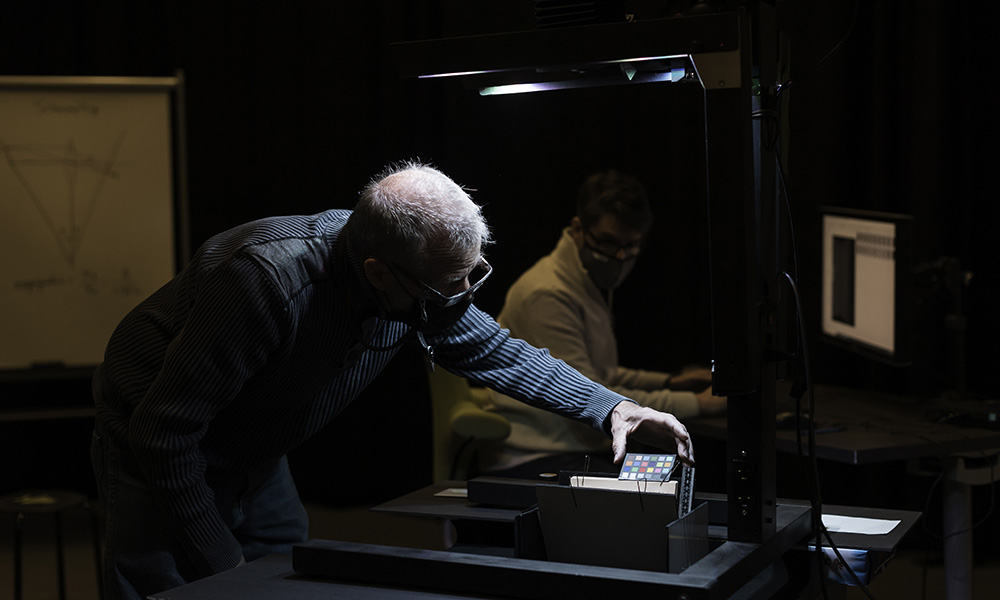
New imaging system captures text from barely open books
Rochester textual scientist Gregory Heyworth led the development of a digitization method for books with fragile binding.
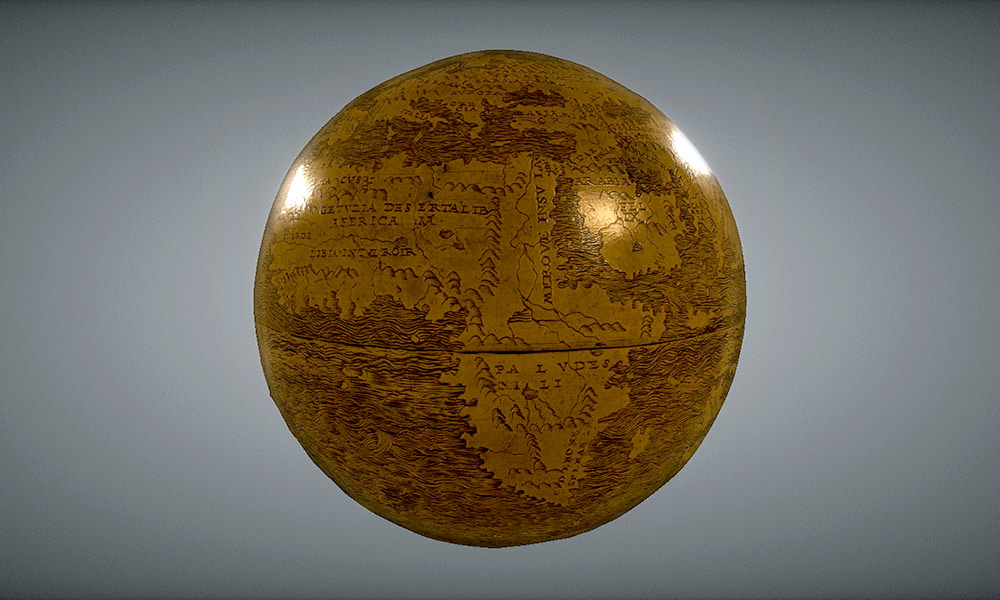
One of the world’s oldest globes is ready for its close-up
Rochester professor Gregory Heyworth and his Lazarus Project colleagues have created a 3-D model of one of the treasures of the New York Public Library, the Hunt-Lenox Globe, one of the first globes to show the New World — and to warn “Here be dragons.”
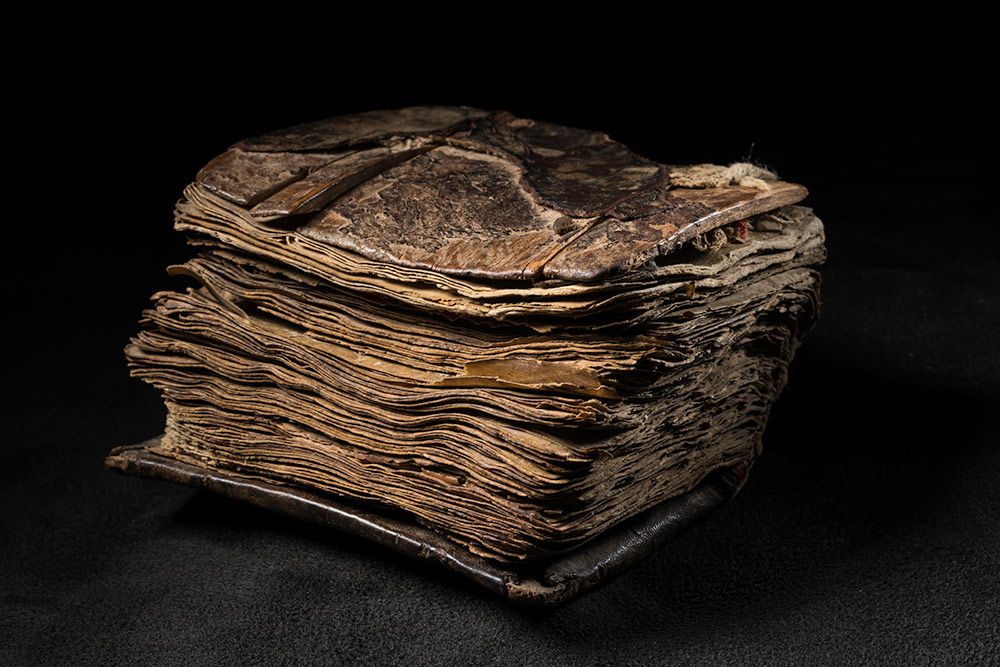
Multispectral imaging unlocks a Smithsonian treasure’s secrets
This tiny book was acquired by the Smithsonian in 1925. It’s made up of 147 folios of parchment, or treated animal hide, stitched together. The “over text”—the visible text—is of an Armenian prayer book, suspected to date from the 15th century. But there is also an “under text”—a work that was erased to recycle the parchment for the over text. The Smithsonian has turned to University of Rochester professor Gregory Heyworth and his Lazarus Project to help solve the mystery of what that long-ago effaced text might be.
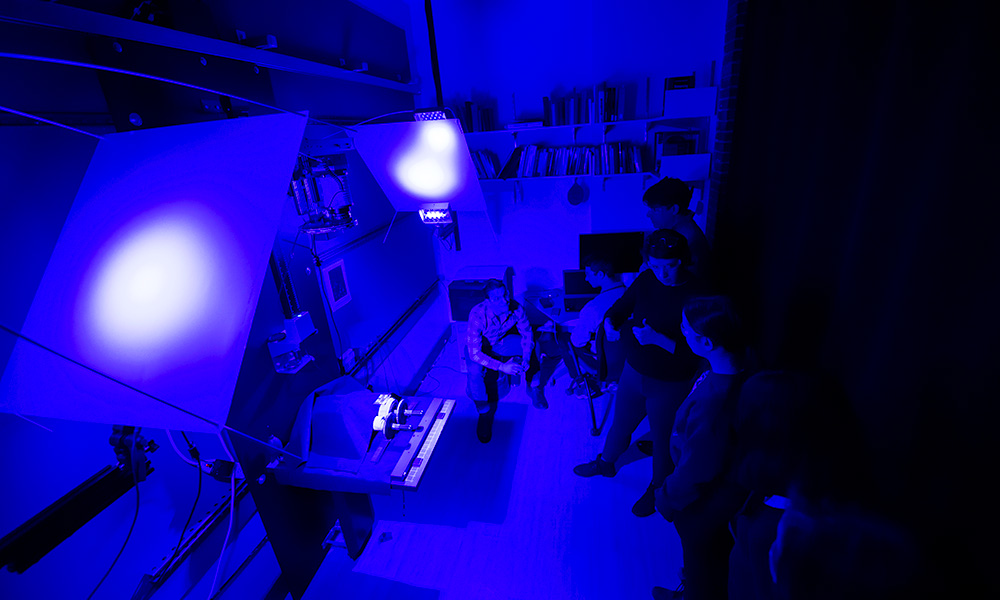
Saving the lost text of a Torah scroll
Professor Gregory Heyworth and his digital media students are using different wavelengths of light to reveal illegible text that could create a sacred, tangible link with Jewish congregations lost to the Holocaust.
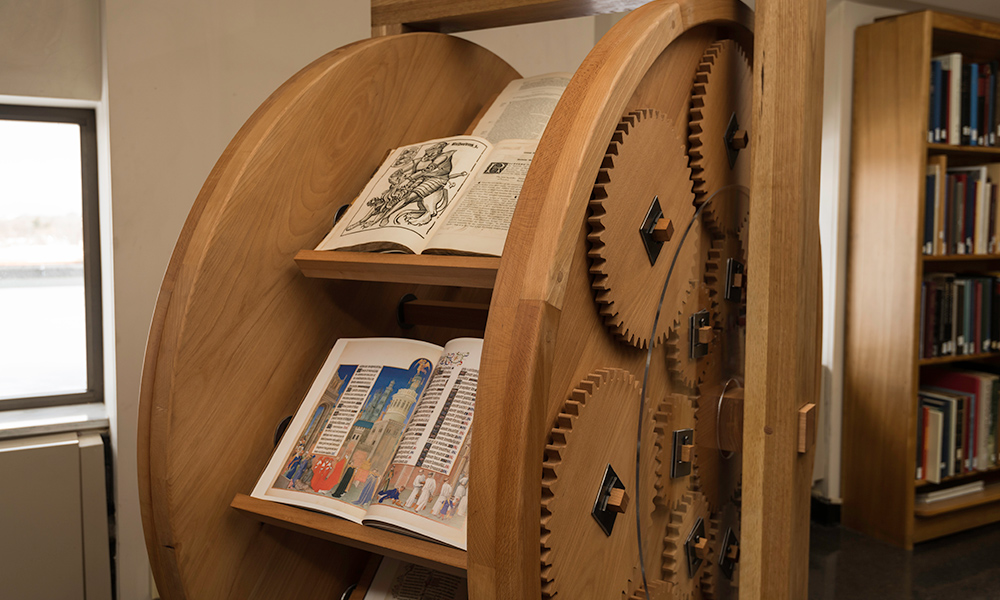
Turning the gears of an early modern search engine
A collaboration between librarians and engineering students, the book wheel in Rossell Hope Robbins Library is a recreation of a 16th-century design, solving the problem of needing access to multiple books at the same time.
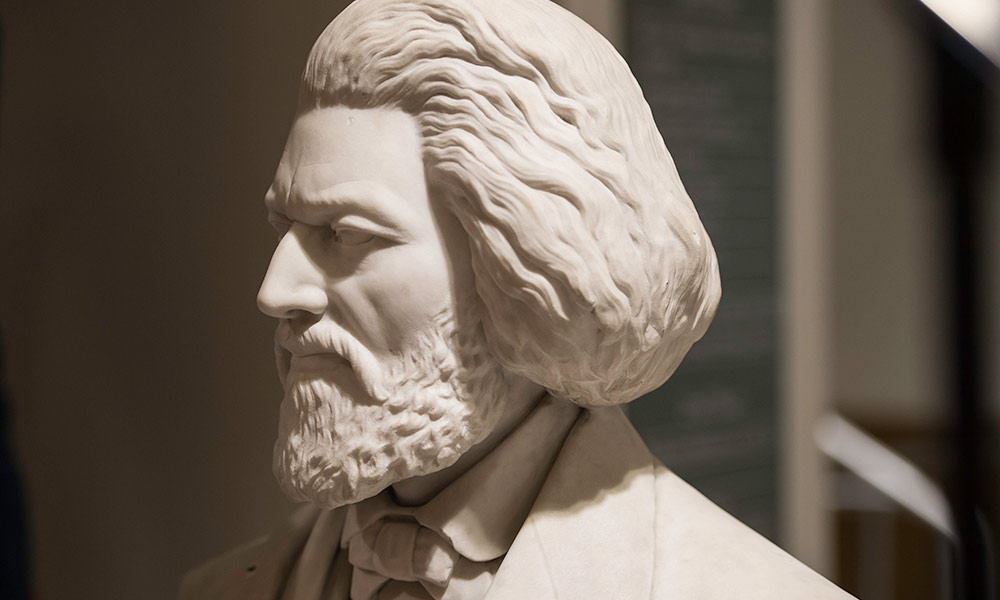
‘I am content to be made known through this specimen of your art to all who may come after me’
In a letter recently acquired by River Campus Libraries, abolitionist and orator Frederick Douglass expresses his pleasure with a bust that can now be reproduced by anyone with a 3D printer.
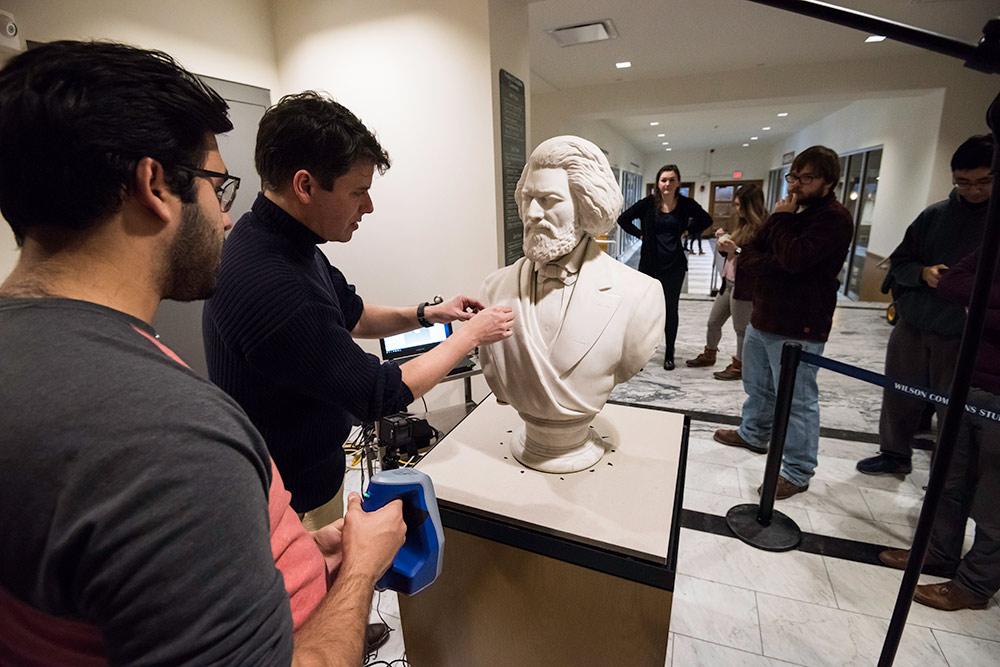
Digitizing Douglass
Victor Garza ’19, left, and associate professor of English Gregory Heyworth prepare to scan the marble bust of Frederick Douglass in the Frederick Douglass Building . The students in Heyworth’s Digital Imaging class are using a structured light scanner to create a digital rendering of the marble bust. Their goal is to create a file that can be accessed and the bust reproduced anywhere with a 3D printer. (University of Rochester photo / J. Adam Fenster)
